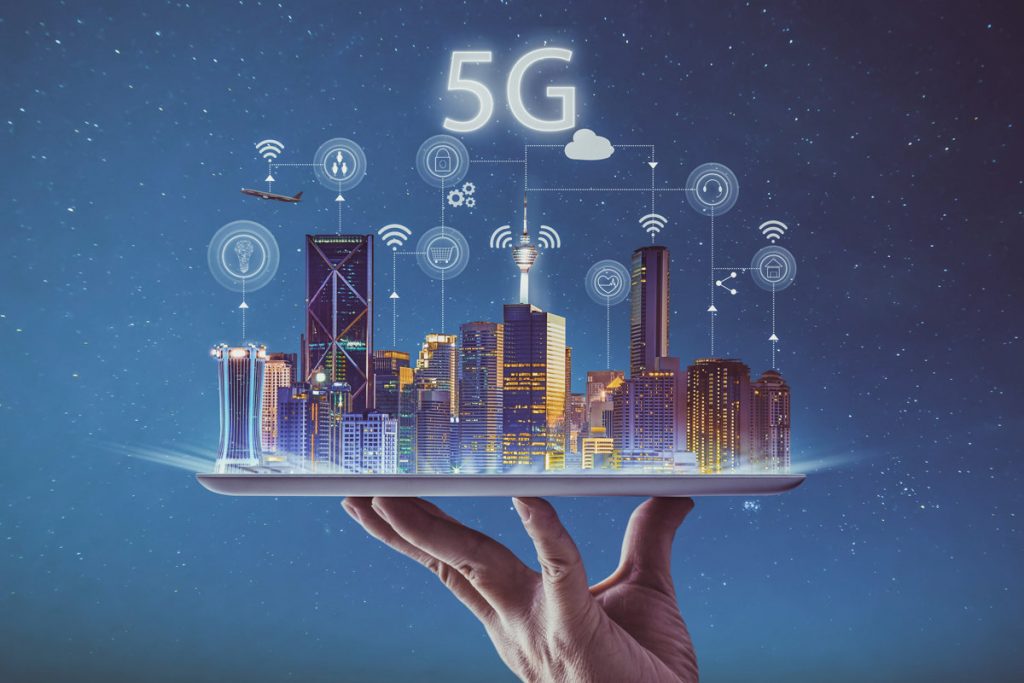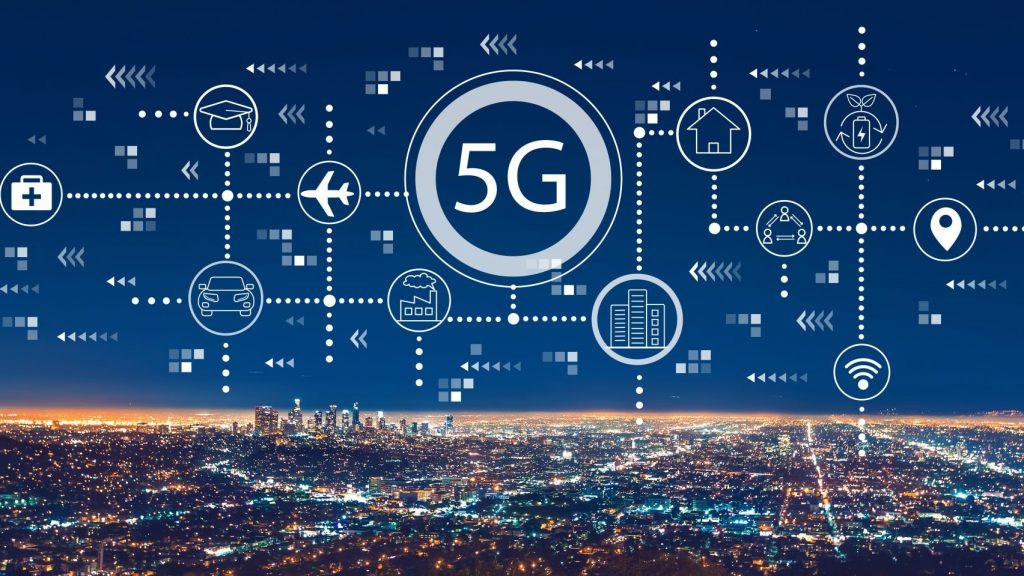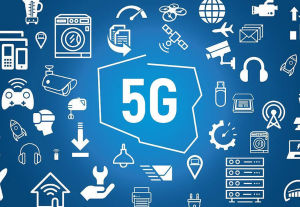This is the latest generation of wireless technology that facilitates a number of inter-connected devices while operating at improved speeds and lower latency.
Major telecom providers such as Telkom and MTN have been investing in 5G infrastructure to accelerate South Africa’s digital transformation. This rollout is set to revolutionise industries by enabling faster connectivity, lower latency, and enhanced IoT applications. As 5G adoption grows, businesses across different sectors will unlock new opportunities for efficiency, automation, and innovation. Below is a look at some of the industries that stand to benefit from this next- generation technology.
12 industries that will benefit the most from the 5G network
Here’s a look at some of the industries that will be able to leverage off this network.
- The retail industry
All retail systems will be intrinsically improved, from stock-taking through to digital signage, with the introduction of the 5G network. The Internet of Things (IoT) will be incredibly effective within the retail space, accelerated through 5G, with items like dressing room mirrors able to supply product information to customers. The online shopping experience will also be improved, particularly pertinent during this time of physical distancing and increased online activity.
- The healthcare industry
The potential for innovation through digitisation is huge within the healthcare industry, and this will be accelerated through the introduction of 5G technology. Within the South African context, this could be particularly beneficial as healthcare via mobile devices will allow for those in remote areas to access life-saving assistance. 5G technology will also allow for real-time access of health data, the use of wearable technology and even bring closer the reality of remote surgery. Through augmented reality (AR) and virtual reality (VR), 5G can assist with the training of medical professionals remotely.

3. Hospitality industry
The re-emergence of the tourism industry following the COVID-19 travel restrictions will see a massive boost through the support of 5G integrated technology. Increased internet speeds will allow visitors to enjoy a fully-immersive digital experience before visiting the site. Once checked in, tourists can take advantage of the many IoT accommodation features such as room temperature adjustment, entertainment options and easy communication with staff.
4. Financial services
No more endless waiting for an operator on the phone, with 5G technology, back-end processes will be streamlined and the financial sector will be able to improve service to remote customers. Through data analytics, this sector will be able to personalise products and services for a better customer experience overall.
5. Transportation industry
Countries with a high road accident rate – such as South Africa – will benefit from the introduction of 5G which will allow for the access of real-time data collection and analysis through car sensors. The next step is the introduction of self-driving vehicles, a particularly worthwhile innovation within the commercial transport sector.
6. Manufacturing industry
We’re are effectively moving towards the ultimate goal of smart factories where hazards are minimised and productivity increased. Through 5G capabilities, production standards will increase because of advanced speed and lower latency.

7. Entertainment industry
In recent years there has been a massive rise of streaming media and online gaming, the likes of which are only set to increase over the coming months. 5G has certainly found a place in the provision of quality connectivity for entertainment. Elements such as AR and VR will also depend on reliable, affordable internet.
- Agricultural industry
The benefits of 5G technology are not restricted to the indoors but will also optimise agricultural processes through water management, crop monitoring, fertilisation, and monitoring of livestock safety. This will also allow for better crop forecasting and automation. Autonomous farming equipment and AI-driven analytics will help farmers make more data-driven decisions.
- Education Sector
With the increase in remote learning, 5G technology will provide seamless online classes, virtual labs, and real-time collaboration tools. Universities and schools can integrate AR and VR into curricula, offering students immersive learning experiences from anywhere in the world.
- Public Safety and Security
5G technology will revolutionise emergency response and public safety by enabling faster communication between first responders. Smart surveillance cameras, AI-driven threat detection, and connected sensors will help authorities and security companies respond more effectively to security threats and natural disasters.
- Energy and Utilities
Smart grids and energy management systems will greatly benefit from 5G by improving energy efficiency and enabling real-time monitoring of infrastructure. Renewable energy systems, such as solar and wind farms, can be more efficiently managed with predictive analytics and IoT connectivity.
- Construction and Real Estate
5G will enhance building site operations by providing real-time data on construction progress, enabling autonomous machinery, and improving safety through connected wearables for workers. Smart buildings will also integrate 5G for better energy management and automation.
Read More: 5G and the Internet of Things
The benefits of 5G across almost every industry are only being realised, and as network capabilities improve, industries will discover innovative methods through digitisation that give a competitive edge and advance every sector.
Read More: Common 5G Questions and Answers

